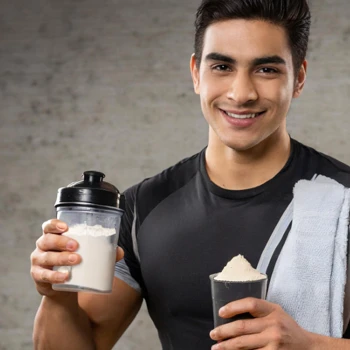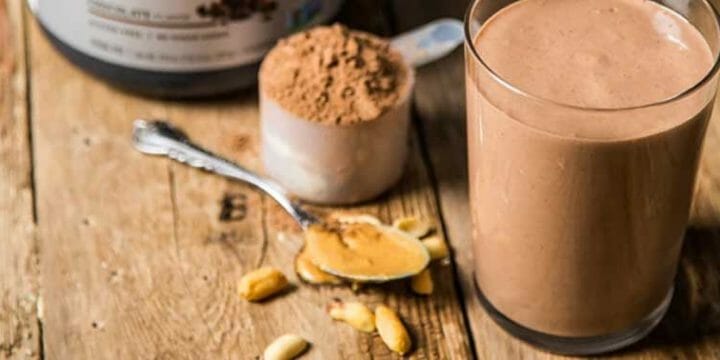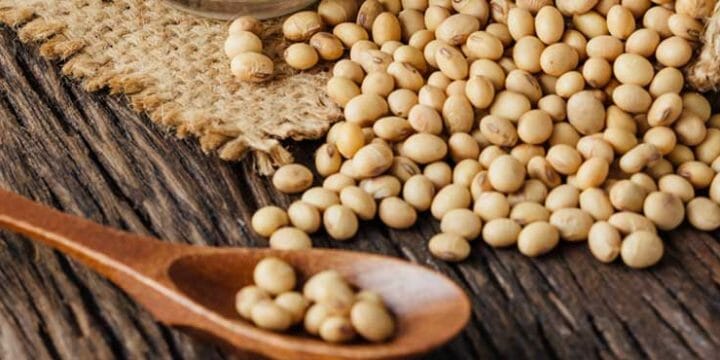Many of my patients use whey protein daily for weight management or muscle gain, and a common concern they bring to me is the impact of protein powders on cholesterol levels.
This concern often arises due to the fat content in these supplements, which is commonly associated with high cholesterol.
After consulting with a dietitian to delve deeper into this matter, I uncovered some surprising details
Quick Summary
- Protein powder can affect cholesterol levels, with whey protein potentially increasing LDL ('bad' cholesterol) and protein isolates often improving HDL ('good' cholesterol).
- Whey protein isolates are recommended for their lower fat content and potential to improve cholesterol, while plant proteins offer a fat-free alternative but may lack a full amino acid range.
- A study by the National Institutes of Health found no significant effect of protein powder on LDL and HDL cholesterol levels, but other research indicates a reduction in LDL and an increase in HDL.
- In my view, given the mixed research findings, it seems wise to carefully select protein powders, leaning towards isolates and plant-based options for more effective cholesterol management.
Does Protein Powder Increase Or Decrease Cholesterol Levels?

In my clinical practice, I've observed varied effects of protein powder, especially whey protein, on cholesterol levels, mirroring the mixed findings in current research.
A study published by the National Institutes of Health (NIH) find no effect on LDL-cholesterol (also known as low-density lipoprotein cholesterol) and HDL-cholesterol (also known as high-density lipoprotein cholesterol) levels. However, other studies report a reduction in LDL-cholesterol, but an increase in HDL-cholesterol levels [1].
A typical protein concentrate will contain about 70% protein and 30% split between sugary carbs and fat.
And that fat is often a mix of good and bad fat. As a result, some whey protein concentrate supplements could increase your bad cholesterol intake, impact your body composition, and lead to heart disease.
According to information found in Ladder, protein isolate supplements process the powder further to bring the protein to 90% leaving only a small amount of fat. And that fat may raise your good LDL cholesterol to lower blood pressure and avoid heart disease [2].
According to a 2018 review published by the National Institutes of Health (NIH), it appears that the effect of protein powder on cholesterol levels is dependent on several factors such as the type of protein powder, the duration of intake, the dose, and the population being studied [3].
What Types Of Protein Are Best For Cholesterol?

To answer this question, I'll take a look at three types of protein powder.
Whey Protein
The type of whey protein that you should consider for its beneficial cholesterol properties is isolate [4]. It has far less fat and carb content than whey concentrate and delivers a stronger dose of essential amino acids per scoop.
Whey protein isolate will be a little bit more expensive, but you're getting a superior product that should avoid heart health issues and help you lose weight.
Egg Protein
Egg protein is a great option for people who are lactose intolerant. This protein is isolated from the egg white, which doesn't contain any fat [5]. As a result, it's a great option to avoid introducing any bad cholesterol boosters to your supplement stack.
Related Article: Egg White Protein vs Whey - What's better?
Plant Protein
The most common type you'll find in powder form is soy protein, but rice, hemp, and pea protein shakes will work just as well. The great thing with soy protein and other plant-based ones is that they contain practically zero fat.
The only thing you'll need to keep in mind is that, unlike whey protein, most plant proteins don't deliver the full amino acid range, so you may need to look for a supplement that blends different sources.
Or, you could choose a hemp protein shake, which is also low in saturated fat to reduce your cholesterol intake but still provides the full amino acid range [6].
"Too much protein of animal origin promotes high cholesterol and can contribute to the onset of cardiovascular disease. Plant protein, e.g., from the hemp plant, offers a remedy here because eating this protein does not lead to these symptoms, as protein in hemp is particularly well-balanced and also especially easily digestible."
- Saint-Charles.eu
How Much Protein Should You Take To Lower Cholesterol?

From my medical research and observations, I've found that both whey protein and plant protein isolates can contribute to increasing LDL, often referred to as the 'good' cholesterol.
For very active people who exercise daily, 20 to 30 grams of protein powder is a good starting point [7].
But it's also a good idea to double that amount if you're in a cutting phase.
Taking two protein shakes a day during those phases would help a lot with some extra fat loss.
For people who are less active and exercise only 2 to 3 times a week, I would still recommend taking protein shakes every day [8]. But on training days, aim for 20 to 30 grams, and on non-training days aim for about 15 grams.
This should still support your workout recovery and give you boosted health benefits for fat reduction.
Are There Downside To Taking More Protein?

People tend to focus only on the benefits of a higher protein intake, especially when it might improve blood pressure.
But there are some downsides if you start taking large volumes of protein through your food and supplements.
One issue you might encounter if you start taking very strong protein shakes with more than 40 grams of protein is that you feel bloated and even get some stomach cramps [9].
Very high levels of taking a dietary protein supplement have also been linked to higher risk factors of kidney stones [10].
So, don't just focus on the blood cholesterol and heart disease benefits, but weigh things up against all risk factors.
FAQs
Does Whey Protein Reduce Cholesterol?
Yes, whey protein powder may reduce cholesterol as long as it's an isolate. This is a high-quality protein that is better than concentrate and contains more protein per serving and less fat. It also has the ideal amino acid profile for building muscle and managing body weight.
Are Plant Proteins Better for Cholesterol?
Yes, plant proteins tend to be better for cholesterol as most of them have less fat than a whey protein supplement. As a result, they shouldn't impact your cholesterol level unless they have added sugar, which you should avoid.
References:
- https://pubmed.ncbi.nlm.nih.gov/27026427/
- https://ladder.sport/pages/whey-protein-isolate-vs-concentrate/
- www.ncbi.nlm.nih.gov/pmc/articles/PMC7504833/
- https://www.healthline.com/nutrition/10-health-benefits-of-whey-protein
- https://www.eatthis.com/high-protein-foods/
- https://www.ncbi.nlm.nih.gov/pmc/articles/PMC6245118/
- https://blog.nasm.org/fitness/the-second-scoop-on-protein-when-what-and-how-much
- https://nakednutrition.com/blogs/recipes/protein-shake-on-off-days
- https://www.express.co.uk/life-style/health/1234980/stomach-pain-and-bloating-causes-protein-reduce-bloating
- https://www.ncbi.nlm.nih.gov/pmc/articles/PMC1169452
About The Author
You May Also Like






